Not sure it's seen as shameful. I mean the "Corman film school" has long been an excellent gateway to film making and has launched dozens of careers many far bigger than Roger himself. Although that's because he likes being king of the B's and is quite happy where he is. But if the bigger producers are outted as creeps it might be his status being better known than it is OTL.Honestly, I could see his reputation possibly getting better as this goes on. I mean, IOTL it was actually considered somewhat shameful to work for him, but I don't think that's going be the case when more mainstream producers are outed as creeps.
You are using an out of date browser. It may not display this or other websites correctly.
You should upgrade or use an alternative browser.
You should upgrade or use an alternative browser.
Blue Skies in Camelot (Continued): An Alternate 80s and Beyond
- Thread starter President_Lincoln
- Start date
Well, I supposed that's been my understanding of it because of how people have talked about it (Jack Nicholson seeming vaguely embarrassed whenever he talks about the stuff he did with Corman for example).Not sure it's seen as shameful. I mean the "Corman film school" has long been an excellent gateway to film making and has launched dozens of careers many far bigger than Roger himself. Although that's because he likes being king of the B's and is quite happy where he is. But if the bigger producers are outted as creeps it might be his status being better known than it is OTL.
He's embarrassed by some of the contents but if you watch Corman's world he has nothing but praise for the man himself. Broadly one gets the impression he wonders why Corman didn't go further and become someone on Weinstein's level (although obviously not evil).Well, I supposed that's been my understanding of it because of how people have talked about it (Jack Nicholson seeming vaguely embarrassed whenever he talks about the stuff he did with Corman for example).
I think ITTL Jack Nicholson has a lot more to be embarrassed and ashamed about then some of the stuff he did with Roger Corman.Well, I supposed that's been my understanding of it because of how people have talked about it (Jack Nicholson seeming vaguely embarrassed whenever he talks about the stuff he did with Corman for example).
Great stuff here. Having done a Soviet-Sweden War in my own TL (though mine was an outflow of the 1981 Karlskrona incident) it’s a tough thing to map out since it requires some touching of the idiot ball by the Politburo. I liked how you structured this and using the gray area of the 1982 election as a hook for extra shakiness, too
Well, if given a referendum on either becoming independent or staying in the USSR by Gorby, the most likely predictions are the following:I'm always mixed feeling on the USSR surviving because unless things change a lot, it's basically trying trying to prevent an empire from losing a number of states it's been subjecting for 40+ years and only got because of WWII left the WestAllies unable to push them out.
- The Baltics: Independence
- Belarus: Staying within the USSR
- Ukraine: 50:50 chances of either result, given that it is split between the Russosceptic western part and the pro-Russia eastern part (including Crimea)
- The Caucassus: Kind of a wild card. 50:50 chances of either result
- Central Asia: Most likely staying within the USSR
Something like what we're seeing now but milder? A partition is the best case scenario.Ukraine: 50:50 chances of either result, given that it is split between the Russosceptic western part and the pro-Russia eastern part (including Crimea)
Perhaps. A country split into two, with a Western-leaning but "Finnlandized" Western Ukraine (not being able to join either NATO or the EC, less they wanted to be subjected to an invasion) on the west while the eastern part is directly incorporated into the Russian SFSR.Something like what we're seeing now but milder? A partition is the best case scenario.
using the Dnieper as a dividing linePerhaps. A country split into two, with a Western-leaning but "Finnlandized" Western Ukraine (not being able to join either NATO or the EC, less they wanted to be subjected to an invasion) on the west while the eastern part is directly incorporated into the Russian SFSR.
Didn't work for the Baltic States and Finland in OTL, even if the Union survives, it can't start asserting itself again until the late 2000s, much like OTL Russia.Perhaps. A country split into two, with a Western-leaning but "Finnlandized" Western Ukraine (not being able to join either NATO or the EC, less they wanted to be subjected to an invasion) on the west while the eastern part is directly incorporated into the Russian SFSR.
This is pretty nice, although I think there'll be a squabble over Kiev. West Kiev in Ukraine and East Kiev in the Soviet Union?using the Dnieper as a dividing line
would the West and the USSR really want another Berlin?This is pretty nice, although I think there'll be a squabble over Kiev. West Kiev in Ukraine and East Kiev in the Soviet Union?
Depends on whether Gorbachev's pet-project reforms turned the USSR into an unstable house of cards or not. If it didn't, then Moscow could reassert its authority over the various constituent republics.Didn't work for the Baltic States and Finland in OTL, even if the Union survives, it can't start asserting itself again until the late 2000s, much like OTL Russia.
Last edited:
Personally I think it's better long term for the whole thing to just collapses and then if any of the countries decide to join Russia in some sort of new union again they can (even Ukraine, decided as it would be on this time, I would rather have them make it as a truly independent that still under the SU.)
I'm always mixed feeling on the USSR surviving because unless things change a lot, it's basically trying trying to prevent an empire from losing a number of states it's been subjecting for 40+ years and only got because of WWII left the WestAllies unable to push them out.
If the Chernobyl disaster is avoided and Perestroika is handled better I can easily see the USSR surviving more or less intact with the Baltic states being the only countries to regain independence. With a more gradual political opening Ukraine nationalism in Western Ukraine can be contained to the OTL pre-2014 level or even lower. The same goes for Chechnya: with a stronger government the Chechen rebels will be crushed immediately and the situation would more than likely resemble OTL Xingang insurgency.Well, if given a referendum on either becoming independent or staying in the USSR by Gorby, the most likely predictions are the following:
- The Baltics: Independence
- Belarus: Staying within the USSR
- Ukraine: 50:50 chances of either result, given that it is split between the Russosceptic western part and the pro-Russia eastern part (including Crimea)
- The Caucassus: Kind of a wild card. 50:50 chances of either result
- Central Asia: Most likely staying within the USSR
If Ukraine is split, it will more than likely follow the OTL proposed South-East Ukrainian Autonomous Republic not on the Dniepr.using the Dnieper as a dividing line
Some videos that I think can help someone understand what I mean are these:
I still don't trust Russia to actually long term actually keep deal it makes towards anything in Eastern Europe (not to mention again I feel so long as your in the union, no country can make a honest choice to be in one). As it seems that Russia will only be non-revischist if all or most what was once the Russia Empire is under their boot in some form.
I'm just hoping that if the Soviet Union survives and is reformed to the point where it's less authoritarian then the nation and it's citizens can prosper and that relations with the united states can be normalized. And to put the cherry on the top, maybe end up with Valentina Tereshkova as elected leader of Russia. Just close your eyes and imagine Valentina, Armstong, and Aldrin, having a reunion at the kremlin.
Chapter 161
Chapter 161 - I Ran (So Far Away): The 1982 Midterm Elections
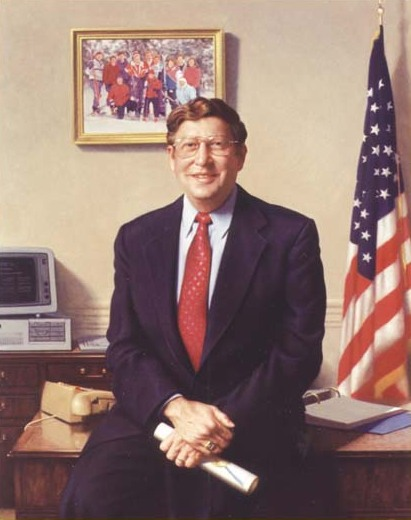
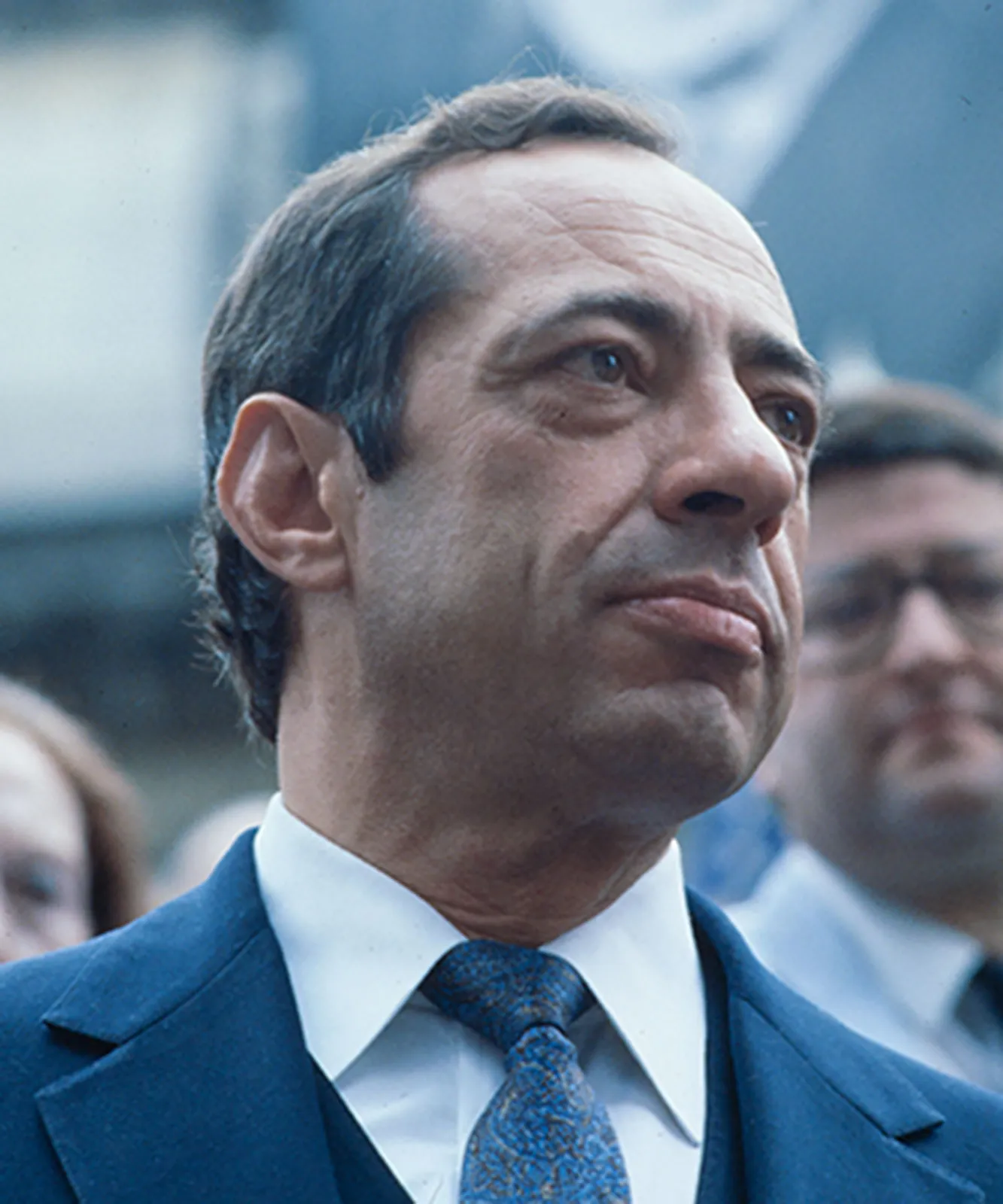
Above: John H. Sununu (R - NH) and Mario M. Cuomo (D - NY), rising stars in their respective parties, were elected Governor of New Hampshire and New York respectively in 1982. “A cloud appears above your head
A beam of light comes shining down on you
Shining down on you
The cloud is moving nearer still
Aurora borealis comes in view
Aurora comes in view
… And I ran, I ran so far away
I just ran, I ran all night and day
I couldn't get away” - “I Ran (So Far Away)” by A Flock of Seagulls
“If you’re tempted to believe with President Kennedy that the government is just like Mom and Pop rather than Big Brother, just ask yourself one question: When was the last time all the IRS wanted from you was a hug and a kiss?” - Paul Laxalt
“Crush your enemies, see them driven before you, and hear the lamentation of the women!” - Arnold Schwarzeneggar as Conan the Barbarian
By the fall of 1982, the effects of “Kennedy-nomics” were being felt widely across the United States. GDP was up. Inflation and unemployment were down. Thanks to sequestration at the defense department, closing tax loopholes, and introducing a few new ones (the federal Value-Added Tax and tax on foreign currency speculation) with the Long-Ullman Tax Act, the federal budget deficit had been turned into a modest surplus. The Comprehensive Crime Control Act, passed and signed into law earlier that year, was also widely considered a success, proving to skeptical independents that Kennedy’s administration heard their concerns and was interested in bipartisanship. Between this “tough on crime” stance and his strong “containment” policy against the Soviet Union, Bob Kennedy enjoyed the confidence and support of a majority of the public - about 57% according to Gallup polling. In all, the American people had more money in their pockets and for the first time in years, they felt optimistic about the direction in which the country was headed. The President and his party thus had every reason to be confident heading into the midterm elections. They hoped that voters would reward them for their efforts on election night - November 2nd, 1982.
They largely did.
In the House of Representatives, Speaker Tip O’Neill (D - MA), one of the key members of what conservatives derisively called the “Massachusetts Mafia” (along with the Kennedys) who seemed to be running the show in Washington, saw a sixteen seat swing in his favor. This brought the Democrats’ total in that chamber to 291 seats, a supermajority. O’Neill was over the moon. This result was doubly surprising as, typically, the midterms see gains made by the opposition party, rather than the incumbent president’s. But RFK’s personal popularity, which reached across ethnic and class lines in a unique way, combined with the feeling that the GOP was “divided” and lacked a compelling narrative to “sell” their candidates around brought about big gains for the “People’s Party”.
The House of Representatives
Democrats (Majority) - 291 (+16)
Republicans (Minority) - 143 (-16)
National Unity (Opposition) - 1 (No Change)
Democrats (Majority) - 291 (+16)
Republicans (Minority) - 143 (-16)
National Unity (Opposition) - 1 (No Change)
Some notable victors of House races from 1982 include:
John Kasich (R - OH) - Born and raised in the Pittsburgh suburb of McKees Rocks, PA, Kasich, 30 years old in 1982, was the son of the descendents of Czech (on his father’s side) and Croatian (on his mother’s side) immigrants. Kasich’s father, John Sr. was a mail carrier with the USPS. Raised Roman Catholic, Kasich attended public school in McKees Rocks and later left his native Pennsylvania, settling in Columbus, Ohio in 1970 to attend Ohio State University, where he joined the Alpha Sigma Phi fraternity. As a freshman, he wrote a letter to President George Romney describing concerns he had about the nation and requesting a meeting with the President. The letter was delivered to Romney by the university's president Novice Fawcett and Kasich was granted a 20-minute meeting with Romney in December 1970. He later graduated with a law degree and embarked on a career in the Ohio State Senate before his election to the US House in 1982, defeating incumbent Democrat Bob Shamansky in Ohio’s 12th District. One to watch in GOP politics.
Major Owens (D - NY) - A professional librarian originally from Collierville, Tennessee, Owens moved to Brooklyn to pursue his career at the Brooklyn public library before entering New York City politics in the late 1960s. In 1982, he was elected as a liberal Democrat to succeed retiring Congresswoman (and New Left trailblazer) Shirley Chisholm. In time, Owens would come to be known as “the librarian in Congress” and would serve as a tireless advocate for public access to knowledge and education.
Barbara Boxer (D - CA) - A former stockbroker and activist against the Cambodian War, forty-two year old Jewish-American Barbara Boxer won her first election to the US House from California’s 6th District in 1982 with the slogan “Barbara Boxer Gives a Damn”. Previously, Boxer had served as the first female president of the Marin County Board of Supervisors. She joined fellow Democrats Harvey Milk and Ron Dellums in representing the San Francisco Bay area in Congress.
Hillary Rodham Bush (R - MD) - Succeeding retiring five-term incumbent Majorie Holt and holding the seat for Maryland’s 4th District (near the VA border, including Andrews Air Force Base) for the GOP, was former President George Bush’s daughter-in-law. Positioning herself as a moderate Romney Republican, and helped along by her husband’s family’s wealth and name recognition, Hillary managed to win 60.7% of the vote in a heavily Democratic year, becoming the only remaining Republican in Maryland’s entire congressional delegation. Nepotism did not win Hillary her seat, though. She was credited as a “spirited campaigner”, who reached out to “every community” within the district she sought to represent. Here, she continues her ascent of GOP politics.
In the Senate, the Democrats’ fortunes were also good, if less exciting. They managed to pick up a single seat, expanding their majority (57 - 43).
Senate Majority Leader Russell B. Long (D - LA), having successfully seen the tax reform that bore his name passed, announced that he would not seek reelection in 1986 and would retire at the end of his term. Having served ably since the days of the Truman administration, Long was finally ready to enjoy the last few years of his life in peace with his family. This meant, of course, that the Democrats would need to elect a new leader for their caucus in the Senate. Long decided to step down as Majority Leader following the ‘82 elections, allowing his successor to step into the role immediately.
Initially, the obvious choice seemed to be the current Majority Whip - Ted Kennedy of Massachusetts. Kennedy was a talented legislator in his own right, skilled at whipping votes and crafting legislation. He also occupied one of the safest “blue” seats in the country. Further, being the President’s brother, a strong working relationship with the White House was virtually guaranteed. There was only one problem: the image of the “Massachusetts Mafia”.
With a Kennedy in the White House and O’Neill, another Boston-Irish liberal as Speaker of the House, the national party and its chairman, Charles Manatt, feared that they would be concentrating too much of their political power in the hands of one region (the Northeast) and one wing of the party (the liberals). Resentment from other regions (particularly the South) and other wings of the party (particularly moderates and conservative communitarians) were already not-so-quietly brimming beneath the surface. If another Northeastern liberal (and a Kennedy to boot) also became Senate Majority Leader, it might well fracture the tenuous alliance holding the coalition together. The President and Speaker thus both met with Ted following Long’s announcement. The following day, Senator Kennedy announced that he would not seek the position of Majority Leader, and would, indeed, step down as Majority Whip.
The question, then: If not Ted Kennedy, then whom?
Conservative members of the caucus wanted Robert Byrd of West Virginia. Having served in the Senate since 1959, Byrd was considered one of the Upper Chamber’s leading experts on parliamentary procedure and knew more than most about how to get bills passed. He was seen as the prototypical “communitarian” Democrat - a social conservative who funneled federal projects toward his home state and supported the broad thrust of social welfare spending. Critically, he also wanted the job, having been one of the leading candidates the last time the caucus elected their leader. Byrd’s selection would not be without its controversy, however.
For one thing, Byrd had staunchly opposed progress on civil rights throughout the 1950s and 60s, being one of several Southern senators to filibuster the Civil Rights Act of 1964, for example. Byrd first got his start in West Virginia politics in the 1940s by organizing and leading a new local chapter of the Ku Klux Klan. Though Byrd would later be among the first senators to hire an African-American aide (in 1959) and would later help integrate the Capitol Police Force, he only officially renounced his past Klan membership and support for segregation when pressed on the issue during his 1976 reelection campaign.
Byrd was also an opponent of tolerance for the LGBT+ community. He opposed repealing anti-sodomy laws at the state level, and was said to have “recoiled” when whispers emerged from the Pentagon in the early 1980s that President Kennedy “might consider” reviewing the legal status of homosexuals serving in the military. Byrd, a Southern Baptist, stated that he believed in the “sanctity of marriage” and considered homosexuality “a sinful, unnatural lifestyle”.
As if these views weren’t enough for President Kennedy to not want Byrd nominated, there was also the matter of personal slights. Byrd, then a close political ally of Lyndon Johnson, had supported Hubert Humphrey in the 1960 Democratic presidential primary in West Virginia over Jack Kennedy. Though Jack had managed to win the primary and later, the nomination without Byrd’s help, Bob Kennedy forgave his enemies, but never forgot their names. Bob thought of Byrd as a political enemy within the party, even if he’d eventually “seen the light” on racial issues.
The president and his fellow liberals favored another candidate - Dale Bumpers. Senator from Arkansas since 1975, Bumpers was often called “northerners’ favorite Southerner” for his relatively liberal viewpoints on a myriad of issues. Witty in his oratory, personally charming, and considered a learned constitutional scholar, Bumpers had been pro-civil rights and was supportive of most of the administration’s preferred policies. He’d cruised to reelection in 1980 and his seat was thus seen as rather safe. Chair of the Senate Committee on Entrepreneurship and Small Business, Bumpers held an intimate knowledge of economic issues, and had supported the administration’s plan for middle class tax cuts. But there was a pretty major problem with Bumpers: he didn’t want the gig.
Some within the Beltway and especially in the media speculated that Bumpers was hoping to position himself for a presidential bid in 1988. Becoming Senate Majority Leader would not only tie him strongly to that body, but also force him to take up the bill of the moment, whether it was one that he personally believed in or not. Not a legislative wizard in the same way as other Senators, Bumpers preferred to remain in his current position. If his attention was truly fixed on his future career prospects, then he wouldn’t be a good fit, regardless. The administration and its allies went back to the drawing board.
Eventually, a compromise candidate emerged: Wendell Ford.
Senator from Kentucky since 1974, Ford (58) was seen by most in Washington as a moderate centrist. He had opposed desegregation busing (even going so far as to support a constitutional amendment banning the practice), but generally supported civil rights and voted for all of the administration’s economic policies. A protectionist on trade issues and a staunch advocate of the tobacco industry (his state’s main cash crop), Ford considered himself “less interested in national issues than he was in Kentucky’s issues”. He supported the development of alternative energy, so long as it didn’t threaten coal jobs back home, and had worked with the West Virginia and Pennsylvania delegations to support better healthcare provisions for coal miners. Amenable to both liberals and conservatives within the party, Ford was elected Senate Majority Leader on the first ballot. John V. Tunney of California, a close friend and ally of Ted Kennedy (and his former roommate at the University of Virginia Law School) known for his focus on antitrust and environmental issues, was elected Majority Whip. Though Tunney was another Irish-Catholic liberal, his being from the West Coast helped smooth things over somewhat.
On the Republican side, Howard Baker and Donald Rumsfeld retained their positions as minority leader and minority whip, respectively. Both were seen as relatively moderate members of the GOP, whose records showed a penchant for bipartisanship. They had both, for example, voted for The Comprehensive Crime Control Act.
The Senate
Democrats (Majority) - 57 Seats (+1)
Republicans (Minority) - 43 Seats (-1)
Democrats (Majority) - 57 Seats (+1)
Republicans (Minority) - 43 Seats (-1)
Alabama
James B. Allen (D)
Jeremiah Denton (R)
Alaska
Theodore F. Stevens (R)
Frank Murkowski (R)
Arizona
Barry Goldwater (R)
Dennis DeConcini (D) - Reelected over Pete Dunn. D Hold.
Arkansas
Dale Bumpers (D)
David Pryor (D)
California
John V. Tunney (D) - Reelected over Pete Wilson. D Hold.
Shirley Temple Black (R)
Colorado
Gary Hart (D)
William L. Armstrong (R)
Connecticut
Chris Dodd (D)
Toby Moffett (D) - Narrowly defeated incumbent Weicker. D Gain.
Delaware
Joseph Biden (D)
Bill Roth (R) - Narrowly Defeated incumbent Mahoney. R Gain.
Florida
Lawton Chiles (D) - Reelected over Van Poole. D Hold.
Paula Hawkins (R)
Georgia
Sam Nunn (D)
Jimmy Carter (D)
Hawaii
Daniel K. Inouye (D)
Spark Matsunaga (D) - Easily reelected over Clarence Brown. D Hold.
Idaho
Frank F. Church (D)
James A. McClure (R)
Illinois
Charles H. Percy (R)
Donald Rumsfeld (R)
Indiana
Richard Lugar (R) - Reelected over Floyd Fithian. R Hold.
Dan Quayle (R)
Iowa
Jack R. Miller (R)
Chuck Grassley (R)
Kansas
Bob Dole (R)
Nancy Kassebaum (R)
Kentucky
Walter B. Huddleston (D)
Wendell Ford (D)
Louisiana
Russell B. Long (D)
John McKeithen (D)
Maine
William Cohen (R)
George J. Mitchell (D) - Reelected over David F. Emery. D Hold.
Maryland
Charles Mathias (R)
Paul Sarbanes (D) - Reelected over Lawrence Hogan. D Hold.
Massachusetts
Edward M. Kennedy (D) - Reelected over Ray Shamie. D Hold.
Paul Tsongas (D)
Michigan
Robert P. Griffin (R)
Donald Riegle (D) - Reelected over Phillip Ruppe. D Hold.
Minnesota
Walter Mondale (D)
Mark Dayton (D) - Defeated incumbent Durenberger. D Gain.
Mississippi
John C. Stennis (D) - Reelected over Haley Barbour. D Hold.
Charles Evers (D)
Missouri
Thomas F. Eagleton (D)
Jerry Litton (D) - Reelected over John Danforth. D Hold.
Montana
Jack Melcher (D) - Reelected over Larry Williams. D Hold.
Max Baucus (D)
Nebraska
Edward Zorinsky (D) - Reelected over Jim Keck. D Hold.
J. James Exon (D)
Nevada
Howard W. Cannon (D) - Reelected over Chic Hecht. D Hold.
Paul Laxalt (R)
New Hampshire
Gordon J. Humphrey (R)
Warren Rudman (R)
New Jersey
Bill Bradley (D)
Frank Lautenberg (D) - Narrowly reelected over Millicent Fenwick. D Hold.
New Mexico
Pete Domenici (R)
Jeff Bingaman (D) - Defeated incumbent Schmitt. D Gain.
New York
Daniel Patrick Moynihan (D) - Reelected over Florence Sullivan. D Hold.
Elizabeth Holtzman (D)
North Carolina
Jesse Helms (R)
John Porter East (R)
North Dakota
Quentin M. Burdick (D) - Reelected over Gene Knorr. D Hold.
Mark Andrews (R)
Ohio
John Glenn (D)
Howard Metzenbaum (D) - Defeated incumbent Robert Taft, Jr. D Gain.
Oklahoma
David Boren (D)
Don Nickles (R)
Oregon
Mark O. Hatfield (R)
Bob Packwood (R)
Pennsylvania
Peter F. Flaherty (D)
John Heinz (R) - Defeated incumbent Green. R Gain.
Rhode Island
John Chafee (R) - Narrowly reelected over Julius Michaelson. R Hold.
Claiborne Pell (D)
South Carolina
Strom Thurmond (R)
Ernest Hollings (D)
South Dakota
Leo Thorsness (R)
James Abdnor (R)
Tennessee
Howard H. Baker, Jr. (R)
James Sasser (D) - Reelected over Robin Beard. D Hold.
Texas
Audie Murphy (D) - Reelected over James Collins. D Hold.
Phil Gramm (R)
Utah
Jake Garn (R)
Orrin Hatch (R) - Reelected over Ted Wilson. R Hold.
Vermont
Richard W. Mallary (R)
Patrick Leahy (D) - Reelected over Robert Stafford. D Hold.
Virginia
John Warner (R)
Dick Davis (D) - Elected to succeed retiring incumbent Harry F. Byrd, Jr. D Hold.
Washington
Warren G. Magnuson (D)
Jim McDermott (D) - Reelected over Douglas Jewett. D Hold.
West Virginia
Jennings Randolph (D)
Robert C. Byrd (D) - Reelected over Cleve Benedict. D Hold.
Wisconsin
William Proxmire (D) - Reelected over Scott McCallum. D Hold.
Gaylord A. Nelson (D)
Wyoming
Alan K. Simpson (R)
Malcolm Wallop (R) - Defeated incumbent McGee. R Gain.
Party Leadership:
Democrats
Senate Majority Leader - Wendell Ford (D - KY)
Senate Majority Whip - John V. Tunney (D - CA)
Speaker of the House - Tip O’Neill (D - MA)
House Majority Leader - Jim Wright (D - TX)
House Majority Whip - Tom Foley (D - WA)
Republicans
Senate Minority Leader - Howard Baker (R - TN)
Senate Minority Whip - Donald Rumsfeld (R - IL)
House Minority Leader - Jack Kemp (R - NY)
House Minority Whip - Bud Shuster (R - PA)
Governorships
Alabama
George C. Wallace (D) - Succeeded retiring incumbent James. D Hold.
Alaska
Bill Sheffield (D) - Succeeded retiring incumbent. D Gain.
Arizona
Bruce Babbitt (D) - Reelected over Leo Corbet. D Hold.
Arkansas
Jim Guy Tucker (D) - Defeated incumbent White. D Gain.
California
*Tom Bradley (D) - Succeeded retiring incumbent Brown. D Hold.
Colorado
Richard Lamm (D) - Reelected over John Fuhr. D Hold.
Connecticut
William O’Neill (D) - Reelected over Lewis Rome. D Hold.
Delaware
Pete Du Pont (R)
Florida
Bob Graham (D) - Reelected over Skip Bafalis. D Hold.
Georgia
Joe Frank Harris (D) - Succeeded retiring incumbent Busbee. D Hold.
Hawaii
George Ariyoshi (D) - Reelected over Frank Fasi. D Hold.
Idaho
John Evans (D) - Reelected over Phil Batt. D Hold.
Illinois
Adlai Stevenson III (D) - Defeated incumbent Thompson. D Gain.
Indiana
Robert D. Orr (R)
Iowa
Terry Branstad (R) - Succeeded retiring incumbent Ray. R Hold.
Kansas
John W. Carlin (D) - Reelected over Sam Hardage. D Hold.
Kentucky
Martha Layne Collins (D)
Louisiana
Dave Treen (R)
Maine
Joseph E. Brennan (D) - Reelected over Charles R. Cragin. D Hold.
Maryland
Harry Hughes (D) - Reelected over Robert A. Pascal. D Hold.
Massachusetts
*Michael Dukakis (D) - Succeeded incumbent Edward J. King. D Hold.
Michigan
James Blanchard (D) - Succeeded retiring incumbent Milliken. D Gain.
Minnesota
Rudy Perpich (D) - Succeeded retiring incumbent Quie. D Gain.
Mississippi
William F. Winter (D)
Missouri
Christopher S. Bond (R)
Montana
Ted Schwinden (D)
Nebraska
Bob Kerrey (D) - Defeated incumbent Thone. D Gain.
Nevada
Richard Bryan (D) - Defeated incumbent List. D Gain.
New Hampshire
John H. Sununu (R) - Defeated incumbent Gallen. R Gain.
New Jersey
Kenneth Gibson (D)
New Mexico
Toney Anaya (D) - Succeeded term-limited incumbent King. D Hold.
New York
*Mario Cuomo (D) - Succeeded retiring incumbent Carey. D Hold.
North Carolina
James B. Hunt (D)
North Dakota
Allen I. Olson (R)
Ohio
Dick Celeste (D) - Succeeded retiring incumbent Rhodes. D Gain.
Oklahoma
George Nigh (D) - Reelected over Tom Daxon. D Hold.
Oregon
Victor Atiyeh (R) - Reelected over Ted Kulongoski. R Hold.
Pennsylvania
Dick Thornburgh (R) - Reelected over Allen E. Ertel. R Hold.
Rhode Island
J. Joseph Garrahy (D) - Reelected over Vincent Marzullo. D Hold.
South Carolina
Richard Riley (D) - Reelected over W. D. Workman Jr.. D Hold.
South Dakota
Bill Janklow (R) - Reelected over Michael J. O'Connor. R Hold.
Tennessee
*Lamar Alexander (R) - Reelected over Randy Tyree. R Hold.
Texas
Mark White (D) - Reelected over Bill Clements. D Hold.
Utah
Scott M. Matheson (D)
Vermont
Richard A. Snelling (R) - Reelected over Madeleine Kunin. R Hold.
Virginia
Chuck Robb (D)
Washington
Dixi Lee Ray (D)
West Virginia
Jay Rockefeller (D)
Wisconsin
Tony Earl (D) - Defeated incumbent Dreyfus. D Gain.
Wyoming
Edgar Herschler (D) - Reelected over Warren A. Morton. D Hold.
Notable Governor’s Races
Tom Bradley (D - CA) - One year after Kenneth Gibson won election as the first African-American governor of a state since Reconstruction, Tom Bradley, the popular Mayor of Los Angeles repeated much of Gibson’s campaign strategy to become the first African-American governor of California, the nation’s most populous state. Like Gibson, the fact that Bradley was able to win as an out and out liberal in a supposedly purple swing state was considered groundbreaking. Bradley defeated Republican George Deukmejian.
Michael Dukakis (D - MA) - The son of Greek immigrants, Dukakis grew up in Brookline, Massachusetts and attended Swarthmore College before enlisting in the United States Army. After graduating from Harvard Law School, he won election to the Massachusetts House of Representatives, serving from 1963 to 1971. He won the 1974 Massachusetts gubernatorial election but lost his 1978 bid for re-nomination to Edward J. King. He defeated King in the 1982 gubernatorial primary and went on to win the general election, earning himself another term in office.
Dick Thornburgh (R - PA) - Described as “one of the few authentic heroes in that episode as a calm voice against panic” during the near-disaster at Three Mile Island in 1979, Governor Thornburgh was also widely recognized for economic development and the establishment of the Ben Franklin Partnership, for implementing welfare reform programs, and for consolidating the state’s universities into the Pennsylvania State System of Higher Education. Pennsylvania's unemployment rate, among the ten highest in the nation when he was elected, was among the ten lowest by the end of his first term. As such, he was easily reelected in 1982, and swiftly became one of the leading faces of the GOP in the 1980s.
Mario Cuomo (D - NY) - When Governor Hugh Carey declined to seek a third term as governor, Lt. Governor Cuomo declared his candidacy. Defeating Congressman Ed Koch in the Democratic Primary, Cuomo then went on to narrowly defeat Republican banker Lewis Lehrman in the general election. The grandson of Italian immigrants, Cuomo briefly considered a career in professional baseball before eventually becoming a lawyer and later, getting involved in politics. First, this was in his native Queens and later, on the state level.
Next Time on Blue Skies in Camelot: The Mexican Presidential Election of 1982
Honestly, I think the fact that Ford opposed busing will likely be seen as more of a positive considering the negative impacts of it.He had opposed desegregation busing
Splendid update, Mr. President. Shame on Ted Kennedy stepping down from Senate Majority Whip, but Realpolitik demands must be met, and Hillary becoming a Representative rather than becoming a Senator first is interesting.Chapter 161 - I Ran (So Far Away): The 1982 Midterm ElectionsAbove: John H. Sununu (R - NH) and Mario M. Cuomo (D - NY), rising stars in their respective parties, were elected Governor of New Hampshire and New York respectively in 1982.


“A cloud appears above your head
A beam of light comes shining down on you
Shining down on you
The cloud is moving nearer still
Aurora borealis comes in view
Aurora comes in view
… And I ran, I ran so far away
I just ran, I ran all night and day
I couldn't get away” - “I Ran (So Far Away)” by A Flock of Seagulls
“If you’re tempted to believe with President Kennedy that the government is just like Mom and Pop rather than Big Brother, just ask yourself one question: When was the last time all the IRS wanted from you was a hug and a kiss?” - Paul Laxalt
“Crush your enemies, see them driven before you, and hear the lamentation of the women!” - Arnold Schwarzeneggar as Conan the Barbarian
By the fall of 1982, the effects of “Kennedy-nomics” were being felt widely across the United States. GDP was up. Inflation and unemployment were down. Thanks to sequestration at the defense department, closing tax loopholes, and introducing a few new ones (the federal Value-Added Tax and tax on foreign currency speculation) with the Long-Ullman Tax Act, the federal budget deficit had been turned into a modest surplus. The Comprehensive Crime Control Act, passed and signed into law earlier that year, was also widely considered a success, proving to skeptical independents that Kennedy’s administration heard their concerns and was interested in bipartisanship. Between this “tough on crime” stance and his strong “containment” policy against the Soviet Union, Bob Kennedy enjoyed the confidence and support of a majority of the public - about 57% according to Gallup polling. In all, the American people had more money in their pockets and for the first time in years, they felt optimistic about the direction in which the country was headed. The President and his party thus had every reason to be confident heading into the midterm elections. They hoped that voters would reward them for their efforts on election night - November 2nd, 1982.
They largely did.
In the House of Representatives, Speaker Tip O’Neill (D - MA), one of the key members of what conservatives derisively called the “Massachusetts Mafia” (along with the Kennedys) who seemed to be running the show in Washington, saw a sixteen seat swing in his favor. This brought the Democrats’ total in that chamber to 291 seats, a supermajority. O’Neill was over the moon. This result was doubly surprising as, typically, the midterms see gains made by the opposition party, rather than the incumbent president’s. But RFK’s personal popularity, which reached across ethnic and class lines in a unique way, combined with the feeling that the GOP was “divided” and lacked a compelling narrative to “sell” their candidates around brought about big gains for the “People’s Party”.
The House of Representatives
Democrats (Majority) - 291 (+16)
Republicans (Minority) - 143 (-16)
National Unity (Opposition) - 1 (No Change)
Some notable victors of House races from 1982 include:
John Kasich (R - OH) - Born and raised in the Pittsburgh suburb of McKees Rocks, PA, Kasich, 30 years old in 1982, was the son of the descendents of Czech (on his father’s side) and Croatian (on his mother’s side) immigrants. Kasich’s father, John Sr. was a mail carrier with the USPS. Raised Roman Catholic, Kasich attended public school in McKees Rocks and later left his native Pennsylvania, settling in Columbus, Ohio in 1970 to attend Ohio State University, where he joined the Alpha Sigma Phi fraternity. As a freshman, he wrote a letter to President George Romney describing concerns he had about the nation and requesting a meeting with the President. The letter was delivered to Romney by the university's president Novice Fawcett and Kasich was granted a 20-minute meeting with Romney in December 1970. He later graduated with a law degree and embarked on a career in the Ohio State Senate before his election to the US House in 1982, defeating incumbent Democrat Bob Shamansky in Ohio’s 12th District. One to watch in GOP politics.
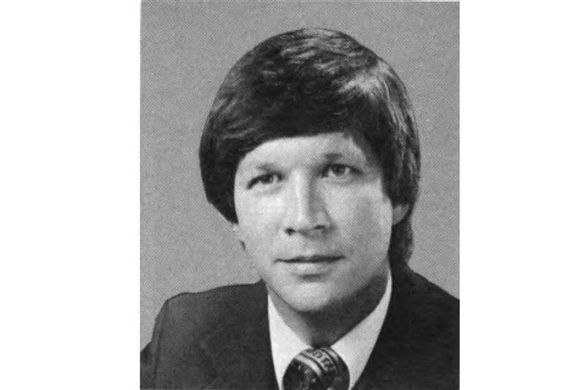
Major Owens (D - NY) - A professional librarian originally from Collierville, Tennessee, Owens moved to Brooklyn to pursue his career at the Brooklyn public library before entering New York City politics in the late 1960s. In 1982, he was elected as a liberal Democrat to succeed retiring Congresswoman (and New Left trailblazer) Shirley Chisholm. In time, Owens would come to be known as “the librarian in Congress” and would serve as a tireless advocate for public access to knowledge and education.
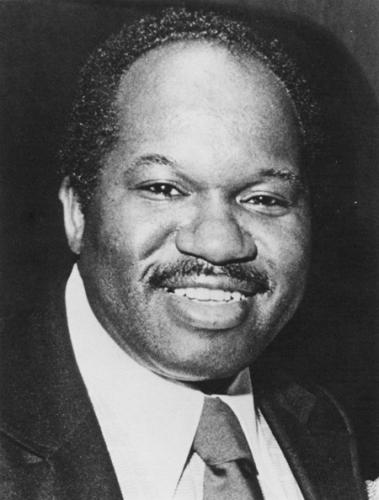
Barbara Boxer (D - CA) - A former stockbroker and activist against the Cambodian War, forty-two year old Jewish-American Barbara Boxer won her first election to the US House from California’s 6th District in 1982 with the slogan “Barbara Boxer Gives a Damn”. Previously, Boxer had served as the first female president of the Marin County Board of Supervisors. She joined fellow Democrats Harvey Milk and Ron Dellums in representing the San Francisco Bay area in Congress.
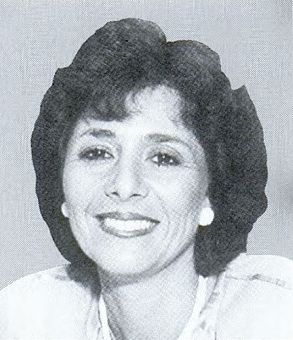
Hillary Rodham Bush (R - MD) - Succeeding retiring five-term incumbent Majorie Holt and holding the seat for Maryland’s 4th District (near the VA border, including Andrews Air Force Base) for the GOP, was former President George Bush’s daughter-in-law. Positioning herself as a moderate Romney Republican, and helped along by her husband’s family’s wealth and name recognition, Hillary managed to win 60.7% of the vote in a heavily Democratic year, becoming the only remaining Republican in Maryland’s entire congressional delegation. Nepotism did not win Hillary her seat, though. She was credited as a “spirited campaigner”, who reached out to “every community” within the district she sought to represent. Here, she continues her ascent of GOP politics.

In the Senate, the Democrats’ fortunes were also good, if less exciting. They managed to pick up a single seat, expanding their majority (57 - 43).
Senate Majority Leader Russell B. Long (D - LA), having successfully seen the tax reform that bore his name passed, announced that he would not seek reelection in 1986 and would retire at the end of his term. Having served ably since the days of the Truman administration, Long was finally ready to enjoy the last few years of his life in peace with his family. This meant, of course, that the Democrats would need to elect a new leader for their caucus in the Senate. Long decided to step down as Majority Leader following the ‘82 elections, allowing his successor to step into the role immediately.
Initially, the obvious choice seemed to be the current Majority Whip - Ted Kennedy of Massachusetts. Kennedy was a talented legislator in his own right, skilled at whipping votes and crafting legislation. He also occupied one of the safest “blue” seats in the country. Further, being the President’s brother, a strong working relationship with the White House was virtually guaranteed. There was only one problem: the image of the “Massachusetts Mafia”.
With a Kennedy in the White House and O’Neill, another Boston-Irish liberal as Speaker of the House, the national party and its chairman, Charles Manatt, feared that they would be concentrating too much of their political power in the hands of one region (the Northeast) and one wing of the party (the liberals). Resentment from other regions (particularly the South) and other wings of the party (particularly moderates and conservative communitarians) were already not-so-quietly brimming beneath the surface. If another Northeastern liberal (and a Kennedy to boot) also became Senate Majority Leader, it might well fracture the tenuous alliance holding the coalition together. The President and Speaker thus both met with Ted following Long’s announcement. The following day, Senator Kennedy announced that he would not seek the position of Majority Leader, and would, indeed, step down as Majority Whip.
The question, then: If not Ted Kennedy, then whom?
Conservative members of the caucus wanted Robert Byrd of West Virginia. Having served in the Senate since 1959, Byrd was considered one of the Upper Chamber’s leading experts on parliamentary procedure and knew more than most about how to get bills passed. He was seen as the prototypical “communitarian” Democrat - a social conservative who funneled federal projects toward his home state and supported the broad thrust of social welfare spending. Critically, he also wanted the job, having been one of the leading candidates the last time the caucus elected their leader. Byrd’s selection would not be without its controversy, however.
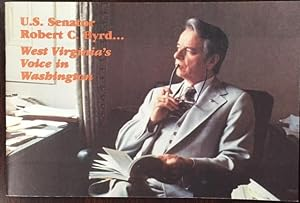
For one thing, Byrd had staunchly opposed progress on civil rights throughout the 1950s and 60s, being one of several Southern senators to filibuster the Civil Rights Act of 1964, for example. Byrd first got his start in West Virginia politics in the 1940s by organizing and leading a new local chapter of the Ku Klux Klan. Though Byrd would later be among the first senators to hire an African-American aide (in 1959) and would later help integrate the Capitol Police Force, he only officially renounced his past Klan membership and support for segregation when pressed on the issue during his 1976 reelection campaign.
Byrd was also an opponent of tolerance for the LGBT+ community. He opposed repealing anti-sodomy laws at the state level, and was said to have “recoiled” when whispers emerged from the Pentagon in the early 1980s that President Kennedy “might consider” reviewing the legal status of homosexuals serving in the military. Byrd, a Southern Baptist, stated that he believed in the “sanctity of marriage” and considered homosexuality “a sinful, unnatural lifestyle”.
As if these views weren’t enough for President Kennedy to not want Byrd nominated, there was also the matter of personal slights. Byrd, then a close political ally of Lyndon Johnson, had supported Hubert Humphrey in the 1960 Democratic presidential primary in West Virginia over Jack Kennedy. Though Jack had managed to win the primary and later, the nomination without Byrd’s help, Bob Kennedy forgave his enemies, but never forgot their names. Bob thought of Byrd as a political enemy within the party, even if he’d eventually “seen the light” on racial issues.
The president and his fellow liberals favored another candidate - Dale Bumpers. Senator from Arkansas since 1975, Bumpers was often called “northerners’ favorite Southerner” for his relatively liberal viewpoints on a myriad of issues. Witty in his oratory, personally charming, and considered a learned constitutional scholar, Bumpers had been pro-civil rights and was supportive of most of the administration’s preferred policies. He’d cruised to reelection in 1980 and his seat was thus seen as rather safe. Chair of the Senate Committee on Entrepreneurship and Small Business, Bumpers held an intimate knowledge of economic issues, and had supported the administration’s plan for middle class tax cuts. But there was a pretty major problem with Bumpers: he didn’t want the gig.
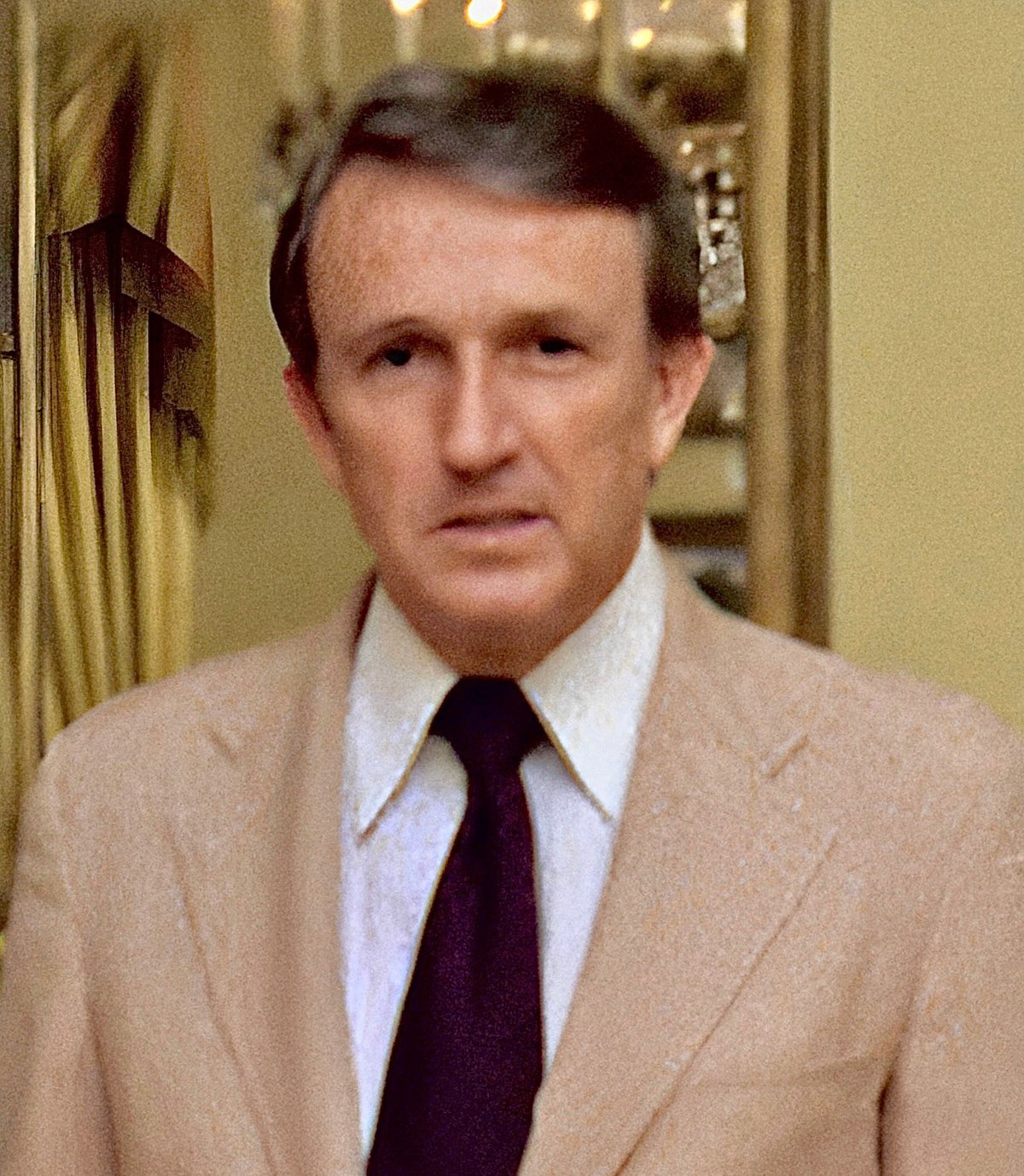
Some within the Beltway and especially in the media speculated that Bumpers was hoping to position himself for a presidential bid in 1988. Becoming Senate Majority Leader would not only tie him strongly to that body, but also force him to take up the bill of the moment, whether it was one that he personally believed in or not. Not a legislative wizard in the same way as other Senators, Bumpers preferred to remain in his current position. If his attention was truly fixed on his future career prospects, then he wouldn’t be a good fit, regardless. The administration and its allies went back to the drawing board.
Eventually, a compromise candidate emerged: Wendell Ford.
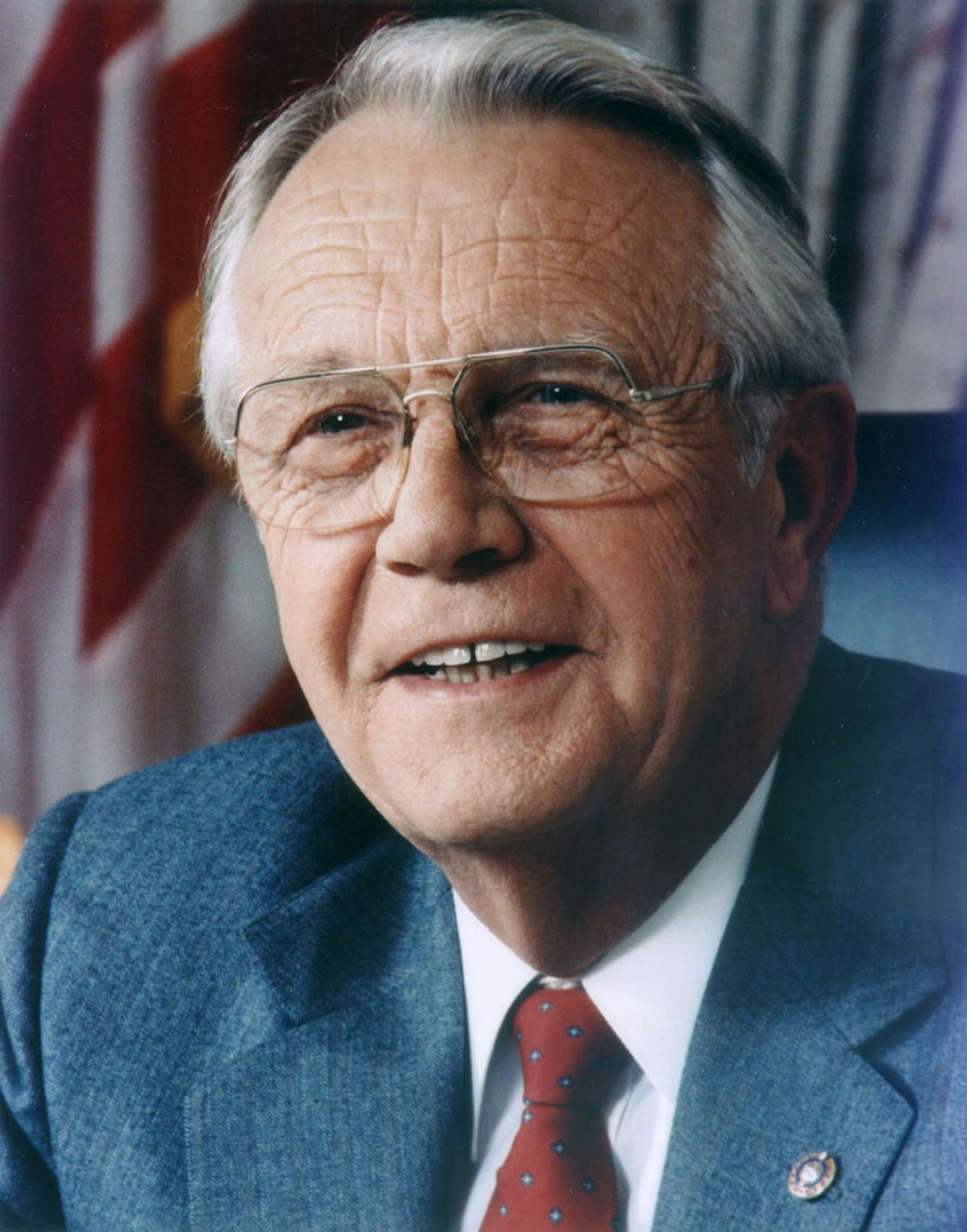
Senator from Kentucky since 1974, Ford (58) was seen by most in Washington as a moderate centrist. He had opposed desegregation busing (even going so far as to support a constitutional amendment banning the practice), but generally supported civil rights and voted for all of the administration’s economic policies. A protectionist on trade issues and a staunch advocate of the tobacco industry (his state’s main cash crop), Ford considered himself “less interested in national issues than he was in Kentucky’s issues”. He supported the development of alternative energy, so long as it didn’t threaten coal jobs back home, and had worked with the West Virginia and Pennsylvania delegations to support better healthcare provisions for coal miners. Amenable to both liberals and conservatives within the party, Ford was elected Senate Majority Leader on the first ballot. John V. Tunney of California, a close friend and ally of Ted Kennedy (and his former roommate at the University of Virginia Law School) known for his focus on antitrust and environmental issues, was elected Majority Whip. Though Tunney was another Irish-Catholic liberal, his being from the West Coast helped smooth things over somewhat.
On the Republican side, Howard Baker and Donald Rumsfeld retained their positions as minority leader and minority whip, respectively. Both were seen as relatively moderate members of the GOP, whose records showed a penchant for bipartisanship. They had both, for example, voted for The Comprehensive Crime Control Act.
The Senate
Democrats (Majority) - 57 Seats (+1)
Republicans (Minority) - 43 Seats (-1)
Alabama
James B. Allen (D)
Jeremiah Denton (R)
Alaska
Theodore F. Stevens (R)
Frank Murkowski (R)
Arizona
Barry Goldwater (R)
Dennis DeConcini (D) - Reelected over Pete Dunn. D Hold.
Arkansas
Dale Bumpers (D)
David Pryor (D)
California
John V. Tunney (D) - Reelected over Pete Wilson. D Hold.
Shirley Temple Black (R)
Colorado
Gary Hart (D)
William L. Armstrong (R)
Connecticut
Chris Dodd (D)
Toby Moffett (D) - Narrowly defeated incumbent Weicker. D Gain.
Delaware
Joseph Biden (D)
Bill Roth (R) - Narrowly Defeated incumbent Mahoney. R Gain.
Florida
Lawton Chiles (D) - Reelected over Van Poole. D Hold.
Paula Hawkins (R)
Georgia
Sam Nunn (D)
Jimmy Carter (D)
Hawaii
Daniel K. Inouye (D)
Spark Matsunaga (D) - Easily reelected over Clarence Brown. D Hold.
Idaho
Frank F. Church (D)
James A. McClure (R)
Illinois
Charles H. Percy (R)
Donald Rumsfeld (R)
Indiana
Richard Lugar (R) - Reelected over Floyd Fithian. R Hold.
Dan Quayle (R)
Iowa
Jack R. Miller (R)
Chuck Grassley (R)
Kansas
Bob Dole (R)
Nancy Kassebaum (R)
Kentucky
Walter B. Huddleston (D)
Wendell Ford (D)
Louisiana
Russell B. Long (D)
John McKeithen (D)
Maine
William Cohen (R)
George J. Mitchell (D) - Reelected over David F. Emery. D Hold.
Maryland
Charles Mathias (R)
Paul Sarbanes (D) - Reelected over Lawrence Hogan. D Hold.
Massachusetts
Edward M. Kennedy (D) - Reelected over Ray Shamie. D Hold.
Paul Tsongas (D)
Michigan
Robert P. Griffin (R)
Donald Riegle (D) - Reelected over Phillip Ruppe. D Hold.
Minnesota
Walter Mondale (D)
Mark Dayton (D) - Defeated incumbent Durenberger. D Gain.
Mississippi
John C. Stennis (D) - Reelected over Haley Barbour. D Hold.
Charles Evers (D)
Missouri
Thomas F. Eagleton (D)
Jerry Litton (D) - Reelected over John Danforth. D Hold.
Montana
Jack Melcher (D) - Reelected over Larry Williams. D Hold.
Max Baucus (D)
Nebraska
Edward Zorinsky (D) - Reelected over Jim Keck. D Hold.
J. James Exon (D)
Nevada
Howard W. Cannon (D) - Reelected over Chic Hecht. D Hold.
Paul Laxalt (R)
New Hampshire
Gordon J. Humphrey (R)
Warren Rudman (R)
New Jersey
Bill Bradley (D)
Frank Lautenberg (D) - Narrowly reelected over Millicent Fenwick. D Hold.
New Mexico
Pete Domenici (R)
Jeff Bingaman (D) - Defeated incumbent Schmitt. D Gain.
New York
Daniel Patrick Moynihan (D) - Reelected over Florence Sullivan. D Hold.
Elizabeth Holtzman (D)
North Carolina
Jesse Helms (R)
John Porter East (R)
North Dakota
Quentin M. Burdick (D) - Reelected over Gene Knorr. D Hold.
Mark Andrews (R)
Ohio
John Glenn (D)
Howard Metzenbaum (D) - Defeated incumbent Robert Taft, Jr. D Gain.
Oklahoma
David Boren (D)
Don Nickles (R)
Oregon
Mark O. Hatfield (R)
Bob Packwood (R)
Pennsylvania
Peter F. Flaherty (D)
John Heinz (R) - Defeated incumbent Green. R Gain.
Rhode Island
John Chafee (R) - Narrowly reelected over Julius Michaelson. R Hold.
Claiborne Pell (D)
South Carolina
Strom Thurmond (R)
Ernest Hollings (D)
South Dakota
Leo Thorsness (R)
James Abdnor (R)
Tennessee
Howard H. Baker, Jr. (R)
James Sasser (D) - Reelected over Robin Beard. D Hold.
Texas
Audie Murphy (D) - Reelected over James Collins. D Hold.
Phil Gramm (R)
Utah
Jake Garn (R)
Orrin Hatch (R) - Reelected over Ted Wilson. R Hold.
Vermont
Richard W. Mallary (R)
Patrick Leahy (D) - Reelected over Robert Stafford. D Hold.
Virginia
John Warner (R)
Dick Davis (D) - Elected to succeed retiring incumbent Harry F. Byrd, Jr. D Hold.
Washington
Warren G. Magnuson (D)
Jim McDermott (D) - Reelected over Douglas Jewett. D Hold.
West Virginia
Jennings Randolph (D)
Robert C. Byrd (D) - Reelected over Cleve Benedict. D Hold.
Wisconsin
William Proxmire (D) - Reelected over Scott McCallum. D Hold.
Gaylord A. Nelson (D)
Wyoming
Alan K. Simpson (R)
Malcolm Wallop (R) - Defeated incumbent McGee. R Gain.
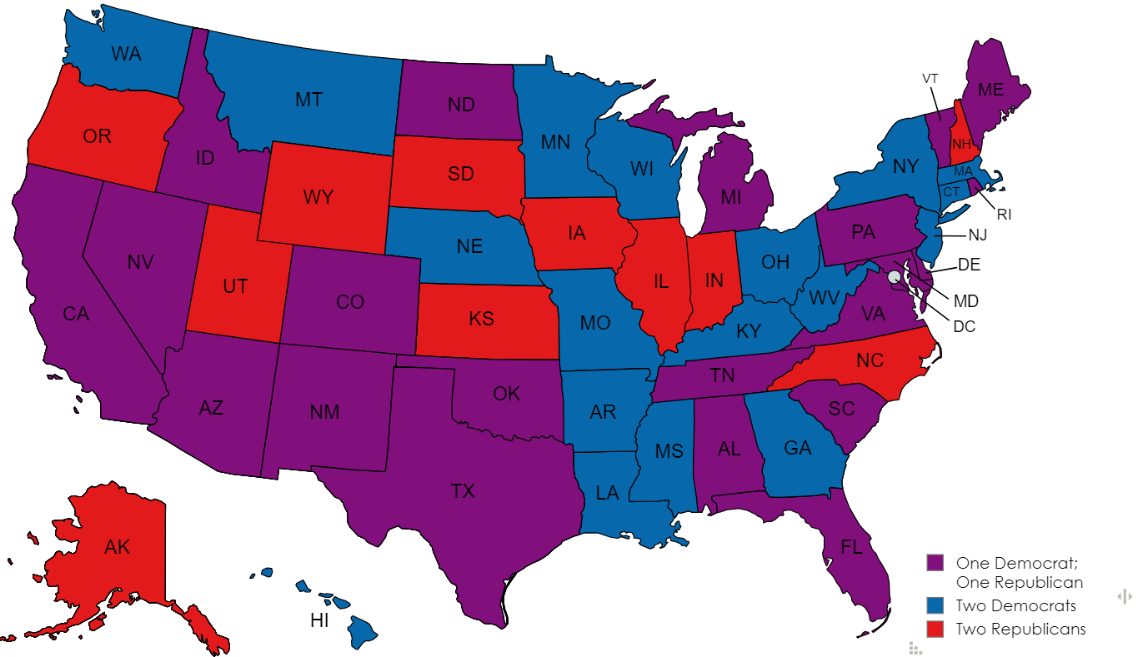
Party Leadership:
Democrats
Senate Majority Leader - Wendell Ford (D - KY)
Senate Majority Whip - John V. Tunney (D - CA)
Speaker of the House - Tip O’Neill (D - MA)
House Majority Leader - Jim Wright (D - TX)
House Majority Whip - Tom Foley (D - WA)
Republicans
Senate Minority Leader - Howard Baker (R - TN)
Senate Minority Whip - Donald Rumsfeld (R - IL)
House Minority Leader - Jack Kemp (R - NY)
House Minority Whip - Bud Shuster (R - PA)
Governorships
Alabama
George C. Wallace (D) - Succeeded retiring incumbent James. D Hold.
Alaska
Bill Sheffield (D) - Succeeded retiring incumbent. D Gain.
Arizona
Bruce Babbitt (D) - Reelected over Leo Corbet. D Hold.
Arkansas
Jim Guy Tucker (D) - Defeated incumbent White. D Gain.
California
*Tom Bradley (D) - Succeeded retiring incumbent Brown. D Hold.
Colorado
Richard Lamm (D) - Reelected over John Fuhr. D Hold.
Connecticut
William O’Neill (D) - Reelected over Lewis Rome. D Hold.
Delaware
Pete Du Pont (R)
Florida
Bob Graham (D) - Reelected over Skip Bafalis. D Hold.
Georgia
Joe Frank Harris (D) - Succeeded retiring incumbent Busbee. D Hold.
Hawaii
George Ariyoshi (D) - Reelected over Frank Fasi. D Hold.
Idaho
John Evans (D) - Reelected over Phil Batt. D Hold.
Illinois
Adlai Stevenson III (D) - Defeated incumbent Thompson. D Gain.
Indiana
Robert D. Orr (R)
Iowa
Terry Branstad (R) - Succeeded retiring incumbent Ray. R Hold.
Kansas
John W. Carlin (D) - Reelected over Sam Hardage. D Hold.
Kentucky
Martha Layne Collins (D)
Louisiana
Dave Treen (R)
Maine
Joseph E. Brennan (D) - Reelected over Charles R. Cragin. D Hold.
Maryland
Harry Hughes (D) - Reelected over Robert A. Pascal. D Hold.
Massachusetts
*Michael Dukakis (D) - Succeeded incumbent Edward J. King. D Hold.
Michigan
James Blanchard (D) - Succeeded retiring incumbent Milliken. D Gain.
Minnesota
Rudy Perpich (D) - Succeeded retiring incumbent Quie. D Gain.
Mississippi
William F. Winter (D)
Missouri
Christopher S. Bond (R)
Montana
Ted Schwinden (D)
Nebraska
Bob Kerrey (D) - Defeated incumbent Thone. D Gain.
Nevada
Richard Bryan (D) - Defeated incumbent List. D Gain.
New Hampshire
John H. Sununu (R) - Defeated incumbent Gallen. R Gain.
New Jersey
Kenneth Gibson (D)
New Mexico
Toney Anaya (D) - Succeeded term-limited incumbent King. D Hold.
New York
*Mario Cuomo (D) - Succeeded retiring incumbent Carey. D Hold.
North Carolina
James B. Hunt (D)
North Dakota
Allen I. Olson (R)
Ohio
Dick Celeste (D) - Succeeded retiring incumbent Rhodes. D Gain.
Oklahoma
George Nigh (D) - Reelected over Tom Daxon. D Hold.
Oregon
Victor Atiyeh (R) - Reelected over Ted Kulongoski. R Hold.
Pennsylvania
Dick Thornburgh (R) - Reelected over Allen E. Ertel. R Hold.
Rhode Island
J. Joseph Garrahy (D) - Reelected over Vincent Marzullo. D Hold.
South Carolina
Richard Riley (D) - Reelected over W. D. Workman Jr.. D Hold.
South Dakota
Bill Janklow (R) - Reelected over Michael J. O'Connor. R Hold.
Tennessee
*Lamar Alexander (R) - Reelected over Randy Tyree. R Hold.
Texas
Mark White (D) - Reelected over Bill Clements. D Hold.
Utah
Scott M. Matheson (D)
Vermont
Richard A. Snelling (R) - Reelected over Madeleine Kunin. R Hold.
Virginia
Chuck Robb (D)
Washington
Dixi Lee Ray (D)
West Virginia
Jay Rockefeller (D)
Wisconsin
Tony Earl (D) - Defeated incumbent Dreyfus. D Gain.
Wyoming
Edgar Herschler (D) - Reelected over Warren A. Morton. D Hold.
Notable Governor’s Races
Tom Bradley (D - CA) - One year after Kenneth Gibson won election as the first African-American governor of a state since Reconstruction, Tom Bradley, the popular Mayor of Los Angeles repeated much of Gibson’s campaign strategy to become the first African-American governor of California, the nation’s most populous state. Like Gibson, the fact that Bradley was able to win as an out and out liberal in a supposedly purple swing state was considered groundbreaking. Bradley defeated Republican George Deukmejian.
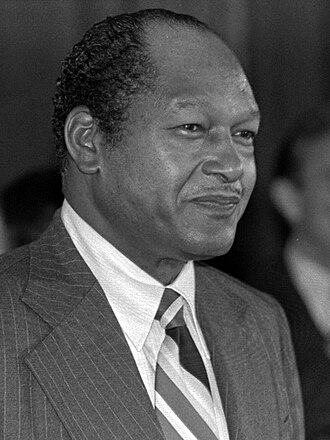
Michael Dukakis (D - MA) - The son of Greek immigrants, Dukakis grew up in Brookline, Massachusetts and attended Swarthmore College before enlisting in the United States Army. After graduating from Harvard Law School, he won election to the Massachusetts House of Representatives, serving from 1963 to 1971. He won the 1974 Massachusetts gubernatorial election but lost his 1978 bid for re-nomination to Edward J. King. He defeated King in the 1982 gubernatorial primary and went on to win the general election, earning himself another term in office.
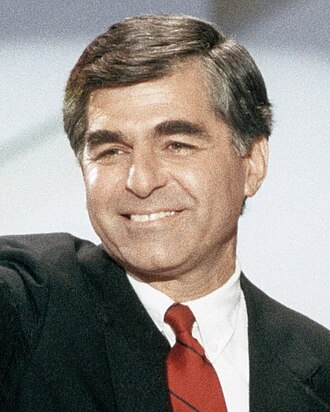
Dick Thornburgh (R - PA) - Described as “one of the few authentic heroes in that episode as a calm voice against panic” during the near-disaster at Three Mile Island in 1979, Governor Thornburgh was also widely recognized for economic development and the establishment of the Ben Franklin Partnership, for implementing welfare reform programs, and for consolidating the state’s universities into the Pennsylvania State System of Higher Education. Pennsylvania's unemployment rate, among the ten highest in the nation when he was elected, was among the ten lowest by the end of his first term. As such, he was easily reelected in 1982, and swiftly became one of the leading faces of the GOP in the 1980s.
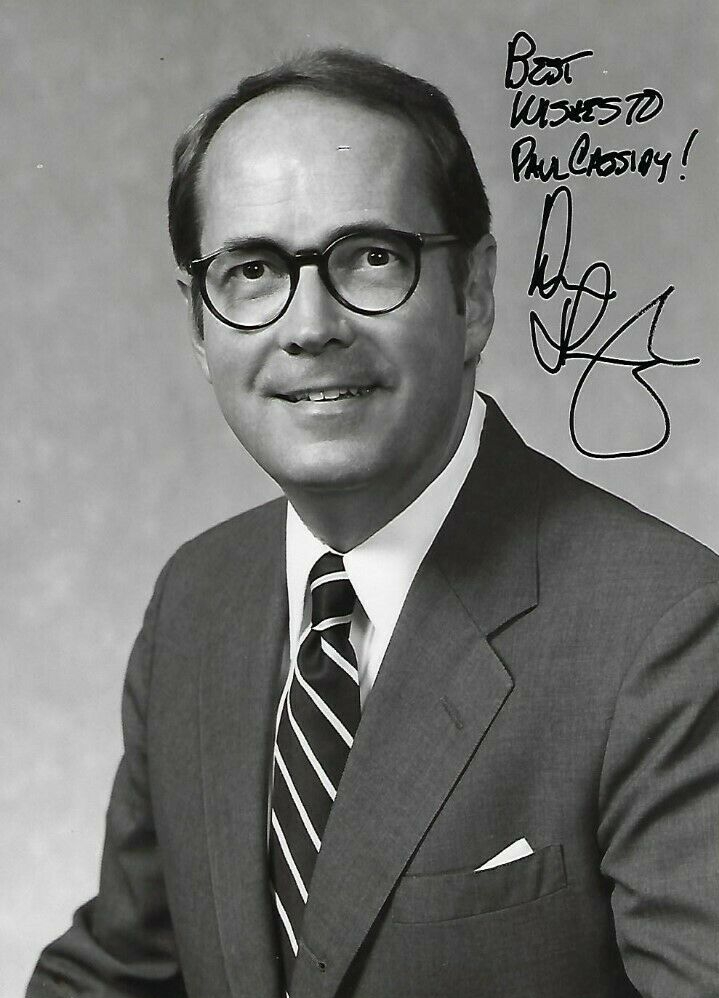
Mario Cuomo (D - NY) - When Governor Hugh Carey declined to seek a third term as governor, Lt. Governor Cuomo declared his candidacy. Defeating Congressman Ed Koch in the Democratic Primary, Cuomo then went on to narrowly defeat Republican banker Lewis Lehrman in the general election. The grandson of Italian immigrants, Cuomo briefly considered a career in professional baseball before eventually becoming a lawyer and later, getting involved in politics. First, this was in his native Queens and later, on the state level.
Lamar Alexander (R - TN) - Riding high on the success of the 1982 World’s Fair in Knoxville, Governor Alexander became one of the few Republicans across the country to find electoral success that November. Touring the state of Tennessee in his trademark red-and-black plaid shirt, Alexander touted his administration’s record job numbers and infrastructure investments as proof that he deserved a second term as governor, something recently allowed by a change to the state constitution. The people of the state agreed, reelecting him in a landslide.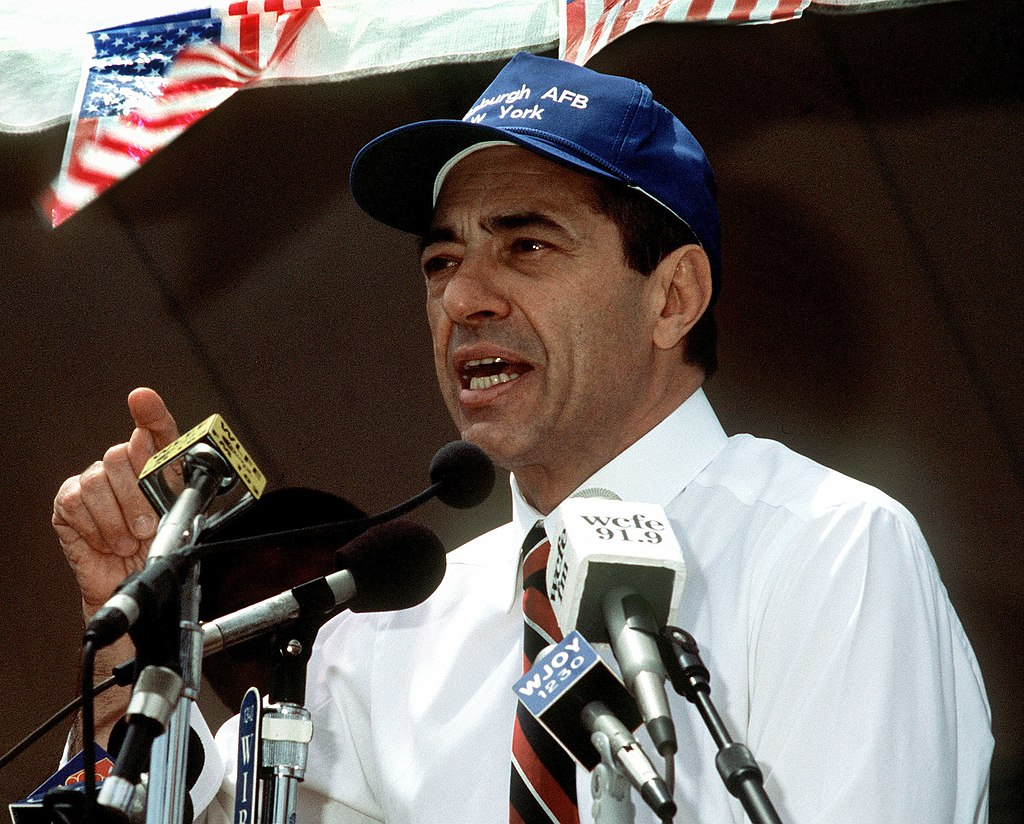
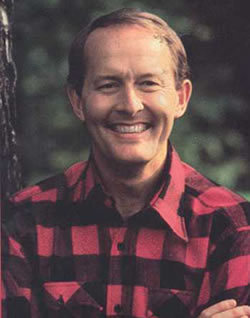
Next Time on Blue Skies in Camelot: The Mexican Presidential Election of 1982
Great job on how politicians on both sides of the aisle, who in our original timeline either had a bland career or were one of the "great has been," could properly rise to national fame and be more influential. Maybe Mario Cuomo and Mike Dukakis could attain their dream of becoming the occupants of 1600 Pennsylvania Avenue in this timeline. I certainly also notice that the "Rising Stars" of the GOP in this timeline are Romney or Bush Republicans, those moderates who, in our timeline, are marginalized or sidelined by an increasingly conservative national party.
Share: